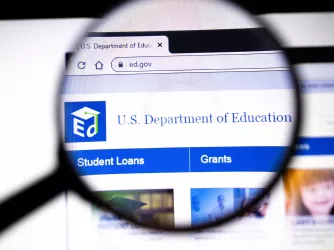Table of Contents
UCLA Study Shows Rise in Student Activism, Free Speech Approval Waning

A study released yesterday by the Higher Education Research Institute at the University of California, Los Angeles (UCLA) indicates freshmen at American colleges are more committed to civic involvement and political activism than ever before.
Marking the 50th year that the Cooperative Institutional Research Program has administered the Freshman Survey, the results show significant trends and provide insight regarding the attitudes towards activism and political affiliations of college freshmen. In addition, the survey shows that students have increasingly restrictive attitudes towards speech and dissenting views. The research detailed in the report is based upon a survey of 141,189 first-year, full-time students who entered 199 four-year U.S. colleges and universities.
Dubbing the freshman class of 2015 “ambitious,” particularly in comparison to previous participants, the survey shows a remarkable upward trend in student activism as well as political and civic engagement. In 2015, 8.5 percent of students said there is a “very good chance” that they would participate in student protests while they are in college. This is the highest level reported since the inception of the survey in 1967 and an increase from 2014’s rate of 5.6 percent.
In addition to participation in campus activism, students were surveyed on opinions about free speech and open debate.
Nearly half (43.2 percent) of freshmen responded that they “agree strongly” or “agree somewhat” with the statement that “[c]olleges have the right to ban extreme speakers from campus.” And a large majority (70.9 percent) of respondents “strongly agree” or “agree somewhat” that “[c]olleges should prohibit racist/sexist speech on campus.” When this same statement was presented to students in the early 1990s, around 60 percent of students agreed.
A majority (63.9 percent) of students said they “strongly agree” or “somewhat agree” with the idea that “[d]issent is a critical component of the political process.” This statistic suggests that even students who claim to value dissenting viewpoints might favor censorship when those viewpoints become too uncomfortable.
It is commendable that students are more willing to engage in activism on campus. However, it is also disheartening to see such a significant number of students willing to ban controversial speakers from campus, call for censorship, or demonstrate that they don’t always value dissenting political viewpoints. It is important that students realize that free speech and activism go hand in hand, and that you are not able to fully engage in activism without robust free speech rights.
FIRE encourages student activists to embrace free speech as the single greatest weapon in their arsenal. But that means respecting the free speech rights of others in the process. That doesn’t mean you have to acquiesce to speech you disagree with: Say so. Debate. Make your voice heard.
As always, FIRE is here to help you do so.
Recent Articles
FIRE’s award-winning Newsdesk covers the free speech news you need to stay informed.

As compliance deadline looms, colleges must resist censorship — and the feds must provide more clarity

This town fought residents over political yard signs — now it’s paying the price

Alex Kozinski on JD Vance’s censorship speech — First Amendment News 459
